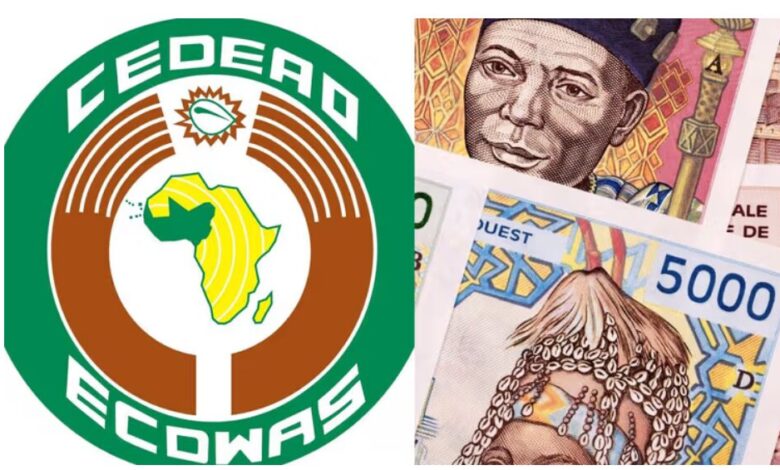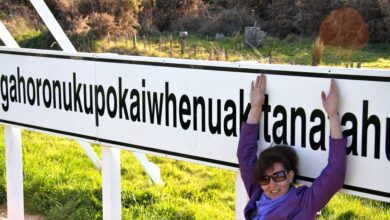ECOWAS Prepares to Launch Single Currency, ECO, Following Nigeria’s Endorsement

The Economic Community of West African States (ECOWAS) is on the brink of a significant milestone: the introduction of a single currency, the ECO.
This ambitious initiative aims to foster economic integration, streamline trade, and bolster monetary stability across the region.
With advanced plans and robust support from key member states, the ECO is poised to reshape the economic landscape of West Africa.
This article delves into the details of this initiative, its anticipated impact, and the steps taken to make it a reality.
The Vision for the ECO
The ECO is not just another currency; it represents a bold vision for economic unity and prosperity in West Africa.
By eliminating the complexities of multiple currencies, the ECO aspires to simplify trade, reduce transaction costs, and enhance economic stability.
This vision aligns with ECOWAS’s broader goals of regional integration and sustainable development.
Nigeria’s Endorsement and Commitment
A critical driving force behind the ECO’s progress is Nigeria’s endorsement. As the largest economy in the region, Nigeria’s support is pivotal.
Wale Edun, Nigeria’s Minister of Finance and Coordinating Minister of the Economy, emphasized the country’s unwavering commitment to the ECO’s successful implementation.
In a recent statement, Edun highlighted the currency’s potential to spur economic growth and development across West Africa.
The Role of the Three-in-One Identity Card
An innovative aspect of the ECO initiative is its incorporation into the three-in-one identity card planned by Nigeria’s National Identity Management Commission (NIMC).
Set for roll-out in August, this card will integrate national identity, voter registration, and the new single currency. This integration is expected to streamline processes and enhance the adoption of the ECO.
Key Decisions at the 92nd Ordinary Session
The 92nd Ordinary Session of the ECOWAS Council of Ministers, held in Abuja, marked a significant step towards the ECO’s introduction.
Finance Ministers and Central Bank Governors from the 15 member states convened to agree on the modalities for the single currency.
This meeting underscored the collective commitment to making the ECO a reality and laid the groundwork for its implementation.
Building Consensus Among Member States
Achieving consensus among the diverse ECOWAS member states is crucial for the success of the ECO. The recent meeting in Abuja brought together key players, including the Minister of Finance of Cape Verde, Olavo Correia, the Minister of Finance and Economic Affairs of Cote d’Ivoire, Adama Coulibaly, and Ghana’s Minister of Finance, Mohammed Amin Adam. Their discussions fostered a renewed sense of purpose and unity, essential for the ECO’s successful launch.
Anticipated Economic Benefits
The introduction of the ECO is expected to bring numerous economic benefits to the region. By simplifying cross-border trade, the single currency will reduce transaction costs and enhance market efficiency.
This could lead to increased trade volumes, greater investment opportunities, and overall economic growth. Additionally, the ECO is anticipated to foster monetary stability, which is critical for long-term development.
Challenges and Roadblocks
While the vision for the ECO is promising, there are several challenges to address. Differences in economic policies, levels of development, and political stability among member states could pose obstacles. Harmonizing these factors to create a conducive environment for the single currency is a complex task that requires coordinated efforts and mutual trust.
The Role of Central Banks
Central banks in the ECOWAS region play a pivotal role in the ECO’s implementation. Their responsibilities include ensuring monetary policy alignment, maintaining price stability, and managing foreign exchange reserves. Collaboration among central banks is essential to create a unified monetary framework that supports the ECO.
Public Awareness and Acceptance
For the ECO to succeed, it is crucial to gain public awareness and acceptance. Educating citizens about the benefits of the single currency, its impact on their daily lives, and how it will facilitate easier and more cost-effective transactions is vital. Public buy-in will drive the smooth transition to the new currency and foster confidence in its stability.
Future Prospects
The future of the ECO looks promising, with significant strides already made towards its implementation. The continued commitment of ECOWAS member states, coupled with strategic planning and effective execution, will be key to realizing this vision. The ECO has the potential to become a cornerstone of economic integration and a catalyst for growth in West Africa.
Conclusion: A Step Towards a Unified Future
The ECOWAS single currency initiative represents a significant leap towards economic integration and stability in West Africa.
By fostering greater economic unity, streamlining trade, and enhancing monetary stability, the ECO has the potential to transform the region’s economic landscape.
As we move closer to its introduction, the collective efforts of member states, central banks, and the public will be crucial in making this vision a reality. The ECO is more than just a currency; it symbolizes a unified future for West Africa, where prosperity and development are within reach for all member states.





